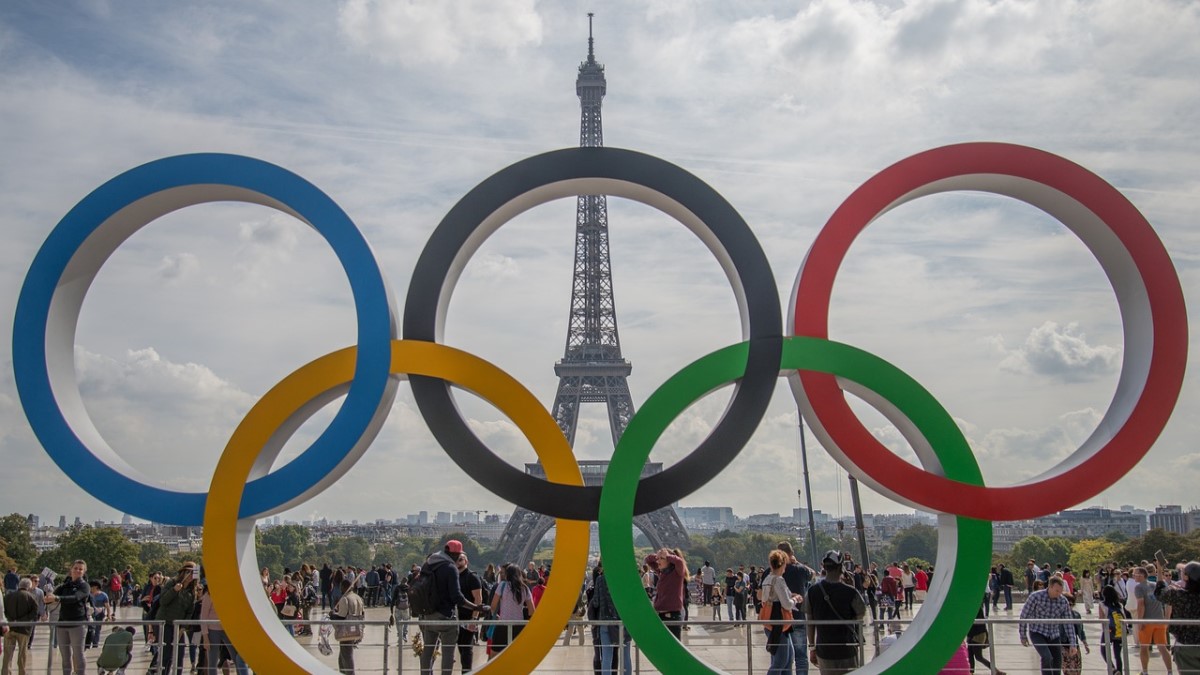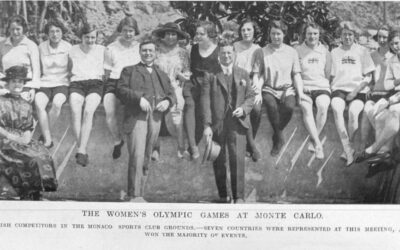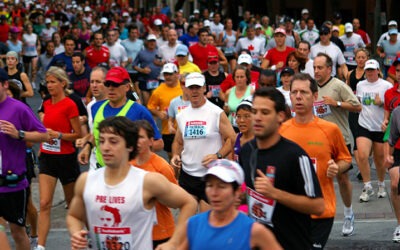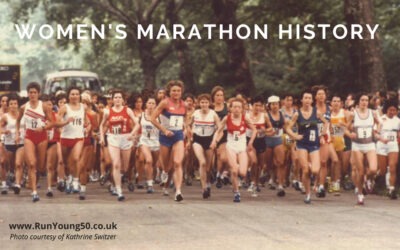On Friday 26th July 2024, the Paris 2024 Olympic Games will begin. Female athletes will compete in a full range of running events with eight distances from 100 metres through to the road marathon. In addition, the programme includes 100 metres hurdles, 400 metres hurdles, 3000 metres steeplechase, 4 x 100 metres relay and 4 x 400 metres relay. The heptathlon consists of four field events plus three running events: 100 metres hurdles, 200 metres and 800 metres.
The picture was very different the last time Paris hosted the Olympic Games in 1924. At the 8th Olympiade, there were no athletics events for women. Women participated in four sports: tennis, swimming, diving and fencing, whilst men competed in twenty-two. It was not until the following Games, Amsterdam 1928, that a small programme of track and field events was introduced for women.
For most of the Olympic Games held in the twentieth century, men had access to a much wider programme of running events than women. The mens’ marathon featured from the first Olympiade in 1896 but it was to be 88 years before women competed at the distance in the Olympics. The first seven summer Olympic Games from 1896 to 1928 had no athletics events for women.
This Olympics timeline shows the running events open to women at each Games.
A timeline of women’s running events at the Olympic Games
1896 Athens Olympic Games – the first Olympics – women do not compete in any sports.
1900 Paris – women are admitted to the Games and compete in golf and tennis.
1904 St.Louis– no athletics events for women
1908 London – no athletics events for women
1912 Stockholm – no athletics events for women
1920 Antwerp – no athletics events for women
1924 Paris – no athletics events for women
1928 Amsterdam -women competed in track and field events for the first time. Running events were 100m, 4 x 100m relay and 800m
1932 Los Angeles – the 800m was withdrawn from the women’s programme and was not reinstated until 1960. Women’s running events were 100m and the 4 x 100m. The 80 metres hurdles was introduced.
1936 Berlin – the same programme as 1932
1948 London – Women’s running events were 100m, the 4 x 100m, 80 metres hurdles and the 200 metres was introduced.
1952 Helsinki – the same programme as 1948
1956 Melbourne – the same programme as 1948
1960 Rome- the same programme as 1948 and the 800 metres was re-introduced after a 32 year gap.
1964 Tokyo -100m, 200m, 4 x 100 metres relay, 800m, 80 metres hurdles and the 400 metres and pentathlon were introduced.
1968 Mexico City – the same programme as 1964
1972 Munich – women had 100m, 200m, 400m, 4 x 100 metres relay, 800m, pentathlon. The 100 metres hurdles replaced the 80 metres hurdles and the 1500 metres and 4 x 400 metres relay were introduced.
1976 Montreal – the same programme as 1972
1980 Moscow – the same programme as 1972
1984 Los Angeles – the year of big changes saw the introduction of 3000 metres, 400 metres hurdles and the marathon. The Heptathlon replaced the Pentathlon.
1988 Seoul – the same programme as 1984 and the introduction of the 10000 metres.
1992 Barcelona – the same programme as 1988
1996 Atlanta – the same programme as 1988 with the 5000 metres replacing the 3000 metres.
2000 Sydney – the same programme as 1996
2004 Athens – the same programme as 1996
2008 Beijing – the 3000 metres steeple chase is introduced.
For the London 2012, Rio 2016, Tokyo 2020 and Paris 2024, the programme has remained the same as 2008.
This timeline shows how slowly change came about in the Olympics. Women had often been competing for years nationally in an event before it was added to the Olympics programme. For example, the English WAAA National Championships included the 3000 metres from 1968, yet it was not added to the Olympics women’s programme until 1984.
Change often came about as a result of concerted and long grassroots campaigns by athletes. The International Runners Committee led by Jacqueline Hansen was instrumental in getting the 3000 metres, 5000 metres, 10000 metres and the marathon added. Kathrine Switzer campaigned for the introduction of the marathon, organising races for women around the world.
Men’s running events at the Olympics 1896 to 1924
During the years when women had no athletics (either track or field) events at the Olympics, there was an extensive and growing programme of running events for men. Field events are not included in this list.
1896 Athens Olympic Games – the first Olympics – five track events and the marathon for the men
1900 Paris – twelve track events and the marathon for the men.
1904 St.Louis – eleven track events, an “All Around Championship” (a precursor to the decathlon) and the marathon
1908 London – eleven events plus the marathon
1912 Stockholm – eleven track events, two cross country events, the pentathlon, the decathlon and the marathon
1920 Antwerp – 13 track events, two cross country events, the pentathlon, the decathlon and the marathon
1924 Paris – 13 track events, two cross country events, the pentathlon, the decathlon and the marathon
When media coverage talks of “Olympic greats” and the history of the Games, it is worth remembering that for a large part of the twentieth century this was mainly a history of male sporting achievement with women excluded from many athletics events.
Notes
Banner image by Rudy and Peter Skitterians from Pixabay
Events featured at the Olympics Games – the Olympic Games website
The Official History of the WAAA, Mel Watman, SportsBooks Limited, 2012
More about the history of the women’s marathon.




0 Comments